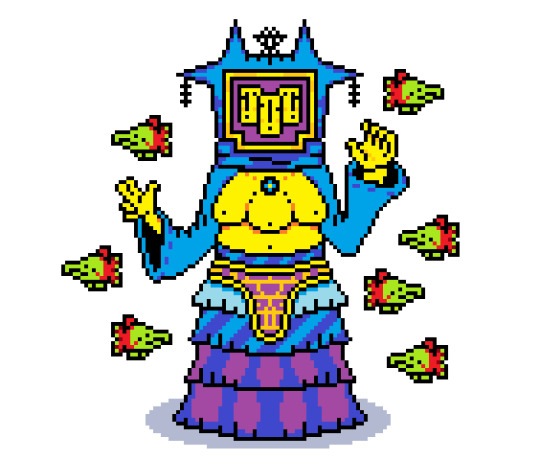#greek lies
Text
All the Gods and Goddesses of Greece were black | Gnostic Warrior By Moe Bedard
(By Sir Godfrey Higgins) – Osiris and his Bull were black; all the Gods and Goddesses of Greece were black: at least this was the case with Jupiter, Bacchus, Hercules, Apollo, Amnion.The Goddesses Venus, Isis, Hecati, Diana, Juno, Metis, Ceres, Cybile, are black. The Multimammia is black in the Campidoglio at Rome, and in Montfaucon, Antiquity explained.The Linghams in India, anointed with oil, are black: a black stone was adored in numbers of places in India.
It has already been observed that, in the galleries, we constantly see busts and statues of the Roman Emperors, made of two kinds of stone; the human part of the statue of black stone, the drapery white or coloured. When they are thus described, I suppose they are meant to be represented as priests of the sun; this was probably confined to the celebration of the Isiac or Egyptian ceremonies.
On the colour of the Gods of the ancients, and of the identity of them all with the God Sol, and with the Cristna of India, nothing more need be said. The reader has already seen the striking marks of similarity in the history of Cristna and the stories related of Jesus in the Romish and heretical books. He probably will not think that their effect is destroyed, as Mr. Maurice flatters himself, by the word Cristna in the Indian language signifying black, and the God being of that colour, when he is informed, of what Mr. Maurice was probably ignorant, that in all the Romish countries of Europe, in France, Italy, German, the God Christ, as well as his mother, are described in their old pictures and statues to be black.
The infant God in the arms of his black mother, his eyes and drapery white, is himself perfectly black. If the reader doubt my word, he may go to the cathedral at Moulins—to the famous chapel of the Virgin at Loretto—to the church of the Annunciata—the church of St. Lazaro, or the church of St. Stephen at Genoa—to St. Francisco at Pisa—to the church at Brixen, in the Tyrol, and to that at Padua—to the church of St. Theodore, at Munich, in the two last of which the whiteness of the eyes and teeth, and the studied redness of the lips, are very observable ;—to a church and to the cathedral at Augsburg, where are a black virgin and child as large as life:—to Rome, to the Borghese chapel Maria Maggiore—to the Pantheon—to a small chapel of St. Peter’s, on the right-hand side on entering, near the door; and, in fact, to almost innumerable other churches, in countries professing the Romish religion.

They are generally esteemed by the rabble with the most profound veneration. The toes are often white, the brown or black paint being kissed away by the devotees, and the white wood left. No doubt in many places, when the priests have new-painted the images, they have coloured the eyes, teeth, &c, in order that they might not shock the feelings of devotees by a too sudden change from black to white, and in order, at the same time, that they might furnish a decent pretence for their blackness, viz. that they are an imitation of bronze: but the number that are left with white teeth, &c, let out the secret.
When the circumstance has been named to the Romish priests, they have endeavoured to disguise the fact, by pretending that the child had become black by the smoke of the candles; but it was black where the smoke of a candle never came: and, besides, how came the candles not to blacken the white of the eyes, the teeth, and the shirt, and how came they to redden the lips? The mother is, the author believes, always black, when the child is. Their real blackness is not to be questioned for a moment.
If the author had wished to invent a circumstance to corroborate the assertion, that the Romish Christ of Europe is the Cristna of India, how could he have desired any thing more striking than the fact of the black Virgin and Child being so common in the Romish countries of Europe? A black virgin and child among the white Germans, Swiss, French, and Italians!!!
The Romish Cristna is black in India, black in Europe, and black he must remain—like the ancient Gods of Greece, as we have just seen. But, after all, what was he but their Jupiter, the second person of their Trimurti or Trinity, the Logos of Parmenides and Plato, an incarnation or emanation of the solar power?
I must now request my reader to turn back to the first chapter, and to reconsider what I have said respecting the two Ethiopias and the existence of a black nation in a very remote period. When he has done this, the circumstance of the black God of India being called Cristna, and the God of Italy, Christ, being also black, must appear worthy of deep consideration. Is it possible, that this coincidence can have been the effect of accident? In our endeavours to recover the lost science of former ages, it is necessary that we should avail ourselves of rays of light scattered in places the most remote, and that we should endeavour to re-collect them into a focus, so that, by this means, we may procure as strong a light as possible: collect as industriously as we may, our light will not be too strong.
I think I need say no more in answer to Mr. Maurice’s shouts of triumph over those whom he insultingly calls impious infidels, respecting the name of Cristna having the meaning of black.
I will now proceed to his other solemn considerations.
The second particular to which Mr. Maurice desires the attention of his reader, is in the following terms: “N, Let it, in the next place, be considered that Chreeshna, so far from being “the son of a virgin, is declared to have had a father and mother in the flesh, and to have been “the eighth child of Devaci and Vasudeva. How inconceivably different this from the sanctity “of the immaculate conception of Christ!”
I answer, that respecting their births they differ; but what has this to do with the points wherein they agree? No one ever said they agreed in every minute particular. Yet I think, with respect to their humanity, the agreement continues. I always understood that Jesus was held by the Romish and Protestant Churches to have become incarnate; that the word was made flesh.’2 That is, that Jesus was of the same kind of flesh, at least as his mother, and also as his brothers, Joses, James, &c.3 If he were not of the flesh of his mother, what was he before the umbilical cord was cut?
It does not appear from the histories, which we have yet obtained, that the immaculate conception. But though the Bull of Osiris was black, the Bull of Europa was white. The story states that Jupiter fell in love with a daughter of Agenor, king of Phoenicia, and Telephassa, and in order to obtain the object of his affections he changed himself into a white bull. After he had seduced the nymph to play with him and caress him in his pasture for some time, at last he persuaded her to mount him, when he fled with her to Crete, where he succeeded in his wishes, and by her he had Minos, Sarpcdon, and Rhadamunthus. Is it necessary for me to point out to the reader in this pretty allegory the peopling of Europe from Phoenicia, and the allusion in the colour of the Bull, viz. tchite, to the fair complexions of the Europeans? An ingenious explanation of this allegory may be seen in Drummond’s Origines, Vol. III. p. 84.* John, ch. i. ver. 14.
I look with perfect contempt on the ridiculous trash which has been put forth to shew that the brothers of Jesus, described in the Gospels, did not mean brothers, but cousins!
#Black Gods#Stolen Gods#All the Gods and Goddesses of Greece were black | Gnostic Warrior#greek lies#African Gods
9 notes
·
View notes
Text
Homer!Odysseus and Epic!Odysseus would try to kill each other if they ever met
#Homer!Odysseus: you sacrificed your men to save yourself? Detestable coward! How I wish I was never born if it would ensure you had not the#Epic!Odysseus: you’d understand if you *loved your wife.* But I guess a guy who stayed with Circe for a year wouldn’t know that!#H!Odysseus: do not speak of things you know nothing about! I long for my return to sweet Penelope but I have a duty to my men#E!Odysseus: A YEAR. A WHOLE YEAR. I WOULD KILL ANYTHING AND ANYONE TO GET A HOME A YEAR FASTER#H!Odysseus: that was clear when you served Scylla six men like they were cattle!#E!Odysseus: it was them or me! And don’t keep talking about my friends like you did any better. you’ll go home alone too#H!Odysseus: they doomed themselves when they ate Hyperion’s golden cattle. I am not responsible for their suffering. But you could have ens#H!Odysseus: Now Eurylochus’s body lies at the bottom of the sea where there can be no burial and no honour#E!Odysseus: AND I’LL GO HOME TO MY WIFE. MY BEAUTIFUL PERFECT LOVELY LOYAL WIFE WHO’S BEEN WAITING FOR ME FOR TWENTY YEARS.#E!Odysseus: and when I go home and she asks if I came back as fast as I could I’ll be able to answer honestly#H!Odysseus: WE HAD BEEN THROUGH MANY TRIALS. THE MEN NEEDED TO REST#E!Odysseus: FOR A YEAR???? DID THEY NEED TO REST FOR A YEAR??? AND DID THEY NEED THAT REST RIGHT AFTER A MONTH’S LONG REST WITH AEOLUS??? S#H!Odysseus: IF YOU WISHED FOR ITHACA SO DESPERATELY WHY DIDN’T YOU OBEY PALLAS ATHENA AND KILL THE CYCLOPS#E!Odysseus: *drawing sword* I WAS HAVING A ROUGH DAY#Epic the musical#Epic odysseus#The odyssey#odysseus#Homer#Greek mythology#Jorge rivera-herrans#nuclear war speaks
859 notes
·
View notes
Text
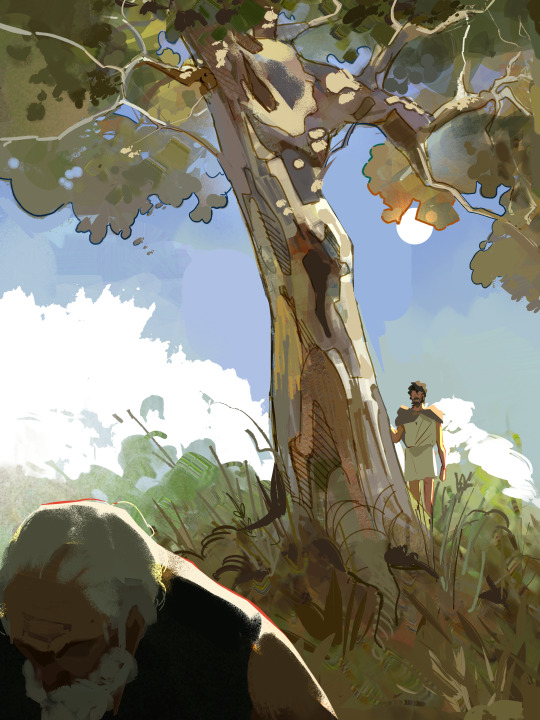
When noble long-suffering Odysseus saw how old and worn and burdened with grief he looked, he halted under a tall pear-tree, tears in his eyes.
#dont let this fool you he immediately lies to his dad right after#art#digital art#tagamemnon#classicstober#the odyssey#greek mythology#epic cycle#odysseus#laertes
6K notes
·
View notes
Text
I've heard of many lies. But your "I love you" will always be my favorite
#angst#spilled ink#spilled thoughts#spilled poetry#poems and quotes#quote#quotes#love#heartache#heartbreak#lies#father#family#text#text post#greek quotes
1K notes
·
View notes
Text
DEATH in the ILIAD: an Infographic

(originally 2014, updated slightly for 2023 - hey it's almost as old as Homer's Trojan War was long!)
#tagamemnon#iliad#homer#homeric#ancient li#greek myth#greek myth comix#greek mythology#achilles and patroclus#achilles#paris#troy#trojan war#infographic#death in the iliad#illustration#comix#statistics#information
2K notes
·
View notes
Text









Love and Deepspace
#love and deepspace#恋与深空#love and deep space#shen xinghui#xavier#沈星回#黎深#li shen#zayne#rafayel#祁煜#qi yu#weibo#just realised these arent on the wallpaper app 😵🥴 ????? but its on weibo#theres even a give away holiday to the maldives/greek islands/fiji/new zealand on their page the pr team is really going for it lol
565 notes
·
View notes
Text
Epic the Musical:
Circe: Oh my! He cannot be transformed by my powers! What do I do?! What do I do?! Think think I need to protect my nymphs! Oh I know! He's a man after all! I'll seduce the hell out of him to get my power over him back! He clearly can defeat my entourage of wolves and lions all by himself! I mean he's damn immune to my magic! I am sure he can do anything with his sword!
Circe: *aggressive flirting*
Odysseus: Oh my gods oh my gods she is hot...what the hell?! Oh I am just a man! Forgive me... No! Wait! J can't! I love My wife way too much! Please let us go home! I miss my wife!
Circe: Awww that is so sweet! Of course darling. I was always a sucker for a good soap opera. Of course I'll help you free of charge and here's some useful tips for your trip! Drive home safely!
The Odyssey:
Circe: Oh my! This man actually had the AUDACITY to come in my home and threaten me! And he took all precautions (a God helped him no doubt). Finally a man I can consider worthy of standing by my side and not bad looking either!
Circe: Come on, darling. Remove your clothes and let's get down on it! Let's see what you've got!
Odysseus: (oh my! Forgive me Penelope that is the only way to save my men! Hermes told me not to refuse her a thing! She is a freaking goddess that commands all these wild beasts! Power over me or not she's a force to be reconed with!) F-Fine but I cannot do what you ask before I ensure my men are safe. Please release them first and then I will (gods gotta buy myself time! Ain't prepared!)
Circe: *does that*
Odysseus: *sighs* I guess we're doing this...
*A year later*
Odysseus: Okay men you had your fun but I can't keep entertaining her forever! We must go home!
Odysseus: Please Circe let me and my people go! We have to go back
Circe: Oh but can't you stay a bit more?
Odysseus: No...I miss my wife and son
Circe: Fine, my dear, if that's what you want... Your happiness is more important than my satisfaction and I love you so I shall let you go. You paid your price fully. Here are some useful tips for you, some provisions and good luck...
#greek mythology#odysseus#the odyssey#greek myth#odyssey#odysseus and penelope#odysseus and circe#“done for” was an amazing song and fitted so well but the next plot kinda ruined it for me#done for#circe#homecoming odysseus#homeric poems#homeric epics#homer#epic and odyssey differences#sorry but epic cannot compare with the original here imo#the odyssey 1997#odysseus didn't fall for circe's charms he was instructed not to refuse her#circe truly loved odysseus#odypen#tagamemnon#odysseus has been through so much#true power lies when you let your beloved go#circe could kill odysseus if she wanted to#circe was still an immortal goddess#kindness has many forms#humorous#humorous script#odysseus was stalling his bedding with circe#my boy is being underrstimated by that scene
165 notes
·
View notes
Text
A New Dawn Will Come - Thoughts on the Dawnchild and Dawnfather
I have to say I was blown away by all of the cast of Downfall, but there was something so heartbreaking in @nickmarini's portrayal of Ayden, the Dawnchild, and Pelor, the Dawnfather.
The duality of youthful self-righteousness wrapped in unbridled hope and optimism. A boy who loves mortals so much he can't help but shape himself in their image - in all their complexities.
He comes with the knowledge that to want to heal and love even if you fail is the brave thing to do. That you cannot always heal, you cannot always save, but you always have to try.
And then, at the end of all things, they are once again betrayed by their kin. Only then for one of their children make a Wish that forces them to do the very thing Ayden set out - promised - his father not to do. The very thing The Father knew was inevitable.
How many times do we go up against the impossible, faced with unbearable decisions where no matter what all of us lose? How many times can we march forward, fighting a losing battle with no happy ending but hoping against reason that you can find a way? How many times do we know inside how this will end, but we still have to try.
Ayden's devastation at Father being right is so young, so painful. It makes me think how each time The Dawnfather knew the Lord of Lies would betray but still loving him anyway. And I can't help but think that each time The Dawnfather is betrayed by his kin there is a 15 year old boy in him who has learned the cruelty of the world for the first time.
But. What stands out to me the most?
The Dawnfather was the last to leave. Not for greed of this world but for love of its children. Their children.
As he cried over the devastation and the pain that he, his siblings, and their creations have wrought, he leaves one final gift with Exandria before finally parting.
He does not want to leave them. He cannot bear to leave them, but The Dawnfather bears the unbearable because it must be done and if not him who?
So, His last tear of Hope falls into the ocean, and it is devastating but still...somehow hopeful.
In this New Dawn, The Dawnfather has given his Hope to Exandria - to the home and people they love despite it all, despite all the ways they have betrayed each other.
He has given them all of the Hope he has that they will rebuild again. That from this sacrifice, this devastation which rippled through the world like a wildfire, new life will grow and a new dawn will come.
#Critical Role#CR Spoilers#critical role spoilers#Downfall#exu downfall#Ayden#The Dawnfather#Nick Marini#Cr meta#I love a greek tragedy#and my gods was this a tragedy#but always always always#like The Everlight whose flame refuses to go out no matter how hard the Lord of Lies tries#Hope Springs Eternal#long post
74 notes
·
View notes
Text
Not to get pedantic (oh who am i kidding that’s most of this blog) but I am genuinely fascinated by the potential applications of the established canon in HoO and TOA that the gods canonically have both historic and regional forms, and can appear as specific versions of those forms and have kids of those specific forms, which influence what powers the kid has/what pantheon they fall under/etc etc (and also the implication that demigods can be born under multiple forms of a singular deity). This is somewhat backed up even earlier in the first series when we’re told that Percy has earthquake powers because of his father being Poseidon “The Earthshaker” (which is Mycenaean Poseidon) - which could also tie into why Percy generally takes leadership roles, is hopping in and out of the Underworld a lot, and is apparently particularly powerful for even just a Big 3 kid, since all that would line up with Mycenaean Poseidon being generally put at the head of the pantheon and also being a chthonic deity.
Now this gets really interesting when we start looking at deities being combined and conflated, because a.) the Romans weren’t the only ones doing that and b.) the Romans had their own gods originally, they didn’t just take the Greek ones and slap a new name on them. They merged a lot with their own preexisting deities alongside adopting worship of deities from other cultures as the Romans spread (and the Greeks also did this), and c.) the ancient Greeks and Romans did exist at the same time.
Like, we know in terms of the Greeks and Romans that if their godly parents are “equivalent” then their demigod children are siblings, just like if Greek demigods have the “same” godly parent then they are also siblings. However, very few Greco-Roman gods are one-to-one, and a lot are like three gods in a trench coat, and then if you want to get into historical forms then you can start running into weird things like “Well, if you go back far enough, these two Greek gods may have originated from the same thing-” and also if we’re talking historical forms, again, the Greeks and Romans existed at the same time! Which means there would be historic forms of godly parents that are both Greek and Roman! So like, where do we go from there? Would Hazel be equally siblings to a child of Plutus as she is to Nico because both Hades and Plutus were conflated into Pluto? Orcus was also conflated with Pluto - does that mean when Nico killed Bryce Lawrence, he was killing his half-brother? (cause then that parallels just a couple chapters later when Will faces off against Octavian-) Are there demigods who, depending on their godly parents’ form(s), are technically both a Greek and Roman demigod? If Hermes and Pan possibly originated from the same god, does that mean all the satyrs are siblings with the Hermes kids? If we want to get into all the nonsense of Dionysus’ origins and Zagreus and Hades, does that mean Nico is technically siblings with Dionysus kids? Does Dionysus joke about this during their therapy sessions? Are some demigods in certain cabins siblings with kids in other cabins but each others’ siblings aren’t siblings depending on what form their godly parents were in?
I have a headache now.
#pjo#riordanverse#percy jackson#chb#camp halfblood#camp half-blood#camp jupiter#analysis#meta#Percy gets tagged for the fun random analysis interjection#listen i think too much about the worldbuilding and how it relates to historical mythology RICK YOU BROUGHT THIS UPON YOURSELF-#i hear ''yeah the gods can appear in historical and regional forms'' and i am already writing stuff about it you cant stop me#listen. there were city-states where the MAIN PANTHEON WAS TOTALLY DIFFERENT#i wanna hear about demigods whose parents are from a *different pantheon format* and how confused they get by the CHB format#also the potential humor of two demigods going ''well technically im your sibling but you're not my sibling'' ''what'' ''nevermind''#also how does deities adopting demigods play into this. how confusing does Jason's family tree get#is it different depending on what form(s) specifically he was adopted by?#also also also - you could totally argue based on linguistics and stuff that Nico 100% never lied to the Romans#(at least about being Greek vs Roman) but that can be a post for another time
452 notes
·
View notes
Text
✨Lore Olympus Art fails✨
Tags:🌸 @miss-seanymph-pani @vilereign @nicasdreamer @tinyy-tea-cup @monstertreden @viostar2095 @brokensenseofhumor🌸
‘Her beauty puts Aphrodite’s to shame💀’

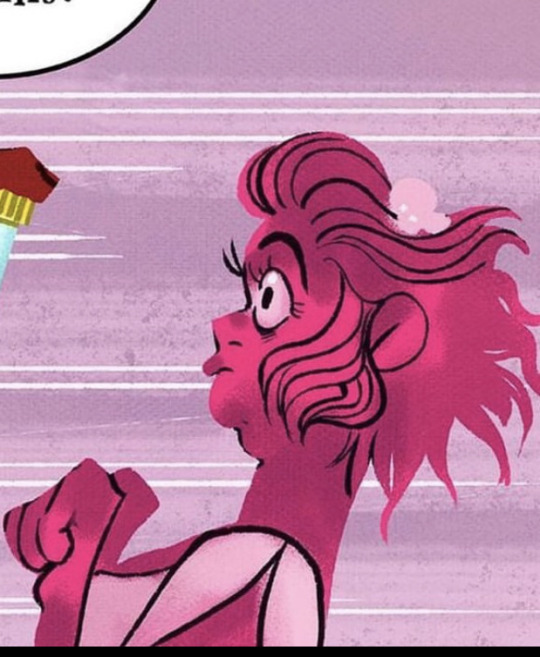
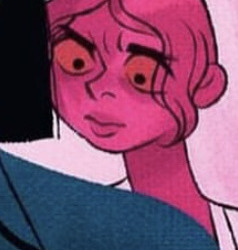
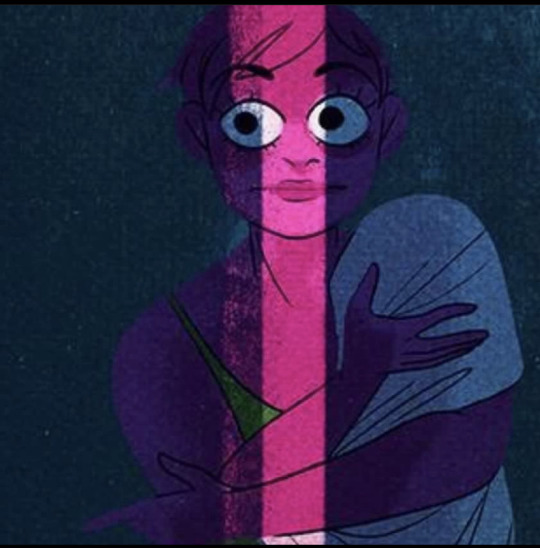



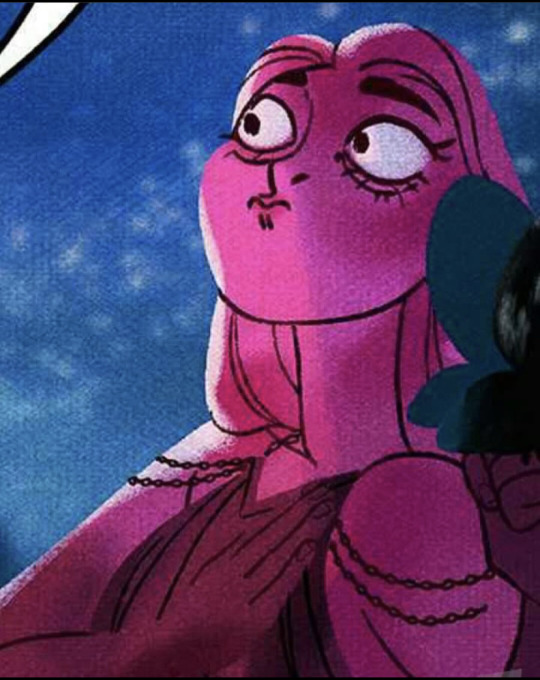

#who lied to her 😭#anti lore olympus#lore olympus criticism#lore olympus persephone#rachel smythe#WHAT IN THE WORLD IS THIS#lore olympus#THE FACT THAT I HAVE SO MUCH MORE#incorrect greek mythology quote#incorrect greek mythology#greek myths
68 notes
·
View notes
Note
I just realized that Kaos tried so hard to turn Orpheus and Eurydice into Helen and Menelaus.
That reminds me of how ppl also try to write Hephaestus and Aphrodite as Helen and Menelaus.
(Again, is true love really a boring plot line nowadays? Man, Let Eurydice like her husband.)
Yeah the uh. “Sacrificing Loyal Boyfriend /Evil Cheating Girlfriend Who Doesn’t Deserve it” trope. Done to a couple who in the myths just really loved each other. Boo 👎👎👎
The thing is the premise was a bit promising at the start; Orpheus going to the Underworld for a Eurydice that has fallen out of love for him. While watching them I found myself asking questions like: Would you fight death itself for someone even if you knew they wouldn’t do the same for you? If they didn’t love you the way you love them? The answer being yes is essentially Menelaus’ drive, because to Menelaus, especially to Menelaus, Helen was worth fighting for. It’s why he (all heavily morally questionable aspects of it aside) wages war and all its consequences to get Helen back home. Love is a strong motivator, thorns and all. The only difference between Menelaus and Orpheus is Menelaus wielding a spear and a thousand men to prove it while Orpheus had only his lyre and his words as a great poet.
AND THE POINT, THE POINT of the Orpheus Eurydice myth is even if their love was doomed, even if he knew the ending, Orpheus would have still loved her, he still would have tried to traversed the Underworld for her, and he still would have looked back, because he loved her. Most accounts have Eurydice die shortly after their wedding— they never even had a chance to settle down, to have a family, to grow old together. The grief of that pain to be translated through song was enough to melt a King’s heart.
Eurydice in the myths was worth fighting for. Eurydice in the show however? Didn’t even seem to care about Orpheus at all. Like not even as a friend. The two episodes I’ve watched had Eurydice being so good at faking being in love Orpheus dedicates songs to her. Despite what we see that she never makes an actual effort for Orpheus. How do you sing your heart out for a woman who doesn’t even remember your favorite cereal? It’s just so laughably bad and written with no care.
As for Hephaestus/Aphrodite… I can see the temptation to make them Like That but it just isn’t comparable. Helen leaving Troy (either via force or willingness) leaving Menelaus and Hermione behind is too different from Hephaestus learning of Aphrodite's infidelity by lying to him about Eros’ (and seemingly Harmonia’s) parentage. Helen could have made an impulsive decision, could have agreed to it only to regret it or maybe she wasn’t given a choice, but it's leagues better than Aphrodite lying straight to Hephaestus’ face, even if she regrets it. Just let them divorce!!!
#ok apologies if i went off#but yeah#imagine if paris stayed and had like Hermione with Helen and Helen lies about it to Menelaus#awful right? thats basically Hephaestus and Aphrodite!!#and the diff between Aphrodite x Hephaestus and Zeus x Hera is the latter having the monogamist wanting to stay.#while Hephaestus wants to be free and marry Aglaia#and he’s allowed to do that!#greek mythology#hephaestus#aphrodite#helen of sparta#menelaus#orpheus#eurydice#anyways try as they might Menelaus/Helen are superior
21 notes
·
View notes
Text
Notes on Dr. Ratio: Design, Philosophy, and Culture

That's right, I'm back with another big thinkpiece! This time, I'll be doing a very long overdue analysis on Ratio and drawing notes to the real-life inspirations behind his character. I'll be having quite a bit of overlap with existing headcanon posts I've made, so if there's anything I repeat I apologize. I'll do my best to link the major posts I've written before as they come up!
I'll be splitting this piece into three different sections: design, kit and naming conventions, and miscellaneous (that gorgeous E6, his personality and backstory, statues, etc). So, without further ado, let's begin! This will be lengthy, just as a general note, and has a lot to point to, so the notes will be bulleted.
Design:
To start, Ratio has an overall blue and white theme. This immediately struck me as very Greek, especially since the colors in his chiton are of a similar shade to the national flag of Greece.
He has a modernized and modified version of the chiton and himation or chlamys, all of which are traditional articles of clothing in Ancient Greece. The chiton is the blue half with the sleeve, and and the himation is the white cloth. Both are tucked under a zone (the girdle), with it only partially hidden on one side. Usually the whole belt would be hidden under the folds of a chiton, but HYV likes their belts. An interesting note regarding the himation is that it's fastened on his left shoulder, rather than the right as it would traditionally be done.
The button fastening Ratio's himation in place is actually a Roman button! An example of one can be seen here, in the Met.
The sandals he wears are more of Greek origin than Roman, I think. It was hard to find the exact type or name, but this site points to several examples.
Naturally, the owl pauldron is a reference to Athena (Minerva in Roman mythology), the Greek goddess of wisdom and strategy. This is a motif that also shows up on Ratio's codex.
His hairpiece is a representation of a laurel wreath, which were awarded to skilled, accomplished people as a symbol of triumph -- though usually intended for victors of athletic or musical and poetic competitions (and for the Romans, martial victory), they have also come to represent academic success and achievement.
The column he summons in his Ultimate is a composite column, noted by the large volutes (reminiscent of an ionic order) as well as the acanthus leaf motifs similar to a corinthian column.
Similarly, acanthus leaves -- a popular design in Ancient Greece and Rome -- make repeated appearances on Ratio's outfit. We can see some sort of acanthus leaf with volutes on his belt buckle, acanthus leaves on his bracers, and also on the hem of his pants.
Throughout his clothing (particularly the flowy bits) we see endless vitruvian scrolls (also called wave scrolls) on his cape wings and the hem of his chiton. Though I didn't see anything suggesting symbolism, it was a very popular design in Ancient Greece all the same, and was thought to represent the Meander, a winding river in Turkey.
His alabaster headpiece looks nothing like him, but I wonder if it could possibly be modeled after Athena instead? The hair is long enough to be braided and curled into a bun, and it does look vaguely similar to some statues and depictions of Athena. It's hard to say.
He wears a signet ring! While the use of signet rings in academics is largely a tradition within the US and Canada from my research, they date back to the Bronze Age of Ancient Greece and were popular in Ancient Rome as symbols of status. Interestingly, Ratio wears his on his left middle finger, rather than his right (which would traditionally symbolize power and strength).
Ratio has a few gems on his person: an amethyst on his gold neckpiece (??? what is that thing, I still have no idea), and a sapphire or lapis lazuli on each bracer and sandal. Amethysts traditionally represent clarity of mind, while both sapphire and lapis lazuli can symbolize wisdom. Interestingly, all three stones have names of Greek or Latin origin.
Seriously, what is that neckpiece? It has wings that sit below the amethyst, and it occurred to me that it looks vaguely similar to a caduceus, with the chain being reminiscent of the intertwined snakes. It should be noted that the caduceus is not a medical symbol, as is commonly misunderstood here in the US, but rather a symbol of Hermes. It has associations with wisdom, eloquence, deception, and trade, which obviously don't all apply to Ratio as a character, but given his alignment with the Intelligentsia Guild/IPC and his role in the Penacony arc, it's interesting to note all the same.
His codex! This is actually a silly marble (??) version of a wax tablet, popularly used in Ancient Greece. Here is an example of a foldable wax tablet from Byzantine Egypt, but the general idea is the same. They were in Greece, too.
Kit and Naming Conventions:
First off, the man himself: Veritas Ratio. I've talked about this at length, so I'll link the most recent post on his etymology here.
His banner title, Panta Rhei. This is Greek for "all things are in flux," and attributed to the Greek philosopher Heraclitus. He was insistent on change and the idea of the world being in constant motion; that is to say, all things being in the process of becoming, but never realizing that final limit. This idea of people constantly changing and growing is something reflected in Ratio's philosophy as well.
Ratio's Lightcone is named "Baptism of Pure Thought," which is particularly interesting to his character. Baptism -- notably the act of immersing one in water -- is largely known as a Christian practice (which did originate in the Roman Empire!). While Ratio himself has never struck me as religious, it's obvious that his baths are an incredibly spiritual and sacred habit for this reason. It's cute lol
His Talent, Cogito Ergo Sum. This is Latin, and translates to "I think, therefore I am." This was most famously used in Descartes' philosophy. Descartes was a French philosopher around the tail end of the Renaissance, and is commonly associated with the rise of modern rationalism and epistemology -- both of these are central to Ratio's character.
Ratio's fifth Eidolon, Sic Itur Ad Astra. This phrase translates to "thus one journeys to the stars," and has its origins in Latin literature. Two noteworthy origins are Virgil, a Roman poet, and Seneca the Younger, a Roman philosopher and playwright. Given how he used to wish to reach for the stars (the Genius Society) and also quite literally travels among the stars, this is a fitting, if a little sad, name.
Ratio's (beloved) sixth Eidolon, Vincit Omnia Veritas. There's no literary or philosophical origin for this from what I saw. It simply means "truth conquers all," a nice, final declaration of Ratio's philosophy.
Miscellaneous:
Ratio's statues from his Technique have three famous real life references. I was unable to find the reference for the one where he's holding his book and lifting his hand up like he's giving a speech, but I saw some speculation that it was in reference to a pope statue. Nothing to really speculate on since I can't find a definitive reference. The flexing statue seems to be in reference to Arnold Schwarzenegger's famous flexing pose, which is certainly A Choice, but it does make sense given Ancient Greek celebration of physical fitness and athleticism. Ratio himself is also fairly muscular and fit, and in his backstory he was noted to exercise frequently on top of his studies, so depictions of said fitness is not surprising. The most important reference, however, is to the Discolobus, an Ancient Greek statue, which also ties back to the idea of athleticism and fitness.
That beautiful, beautiful E6. It's a direct reference to Michelangelo's David. Interestingly, Ratio seems to have quite a number of nods to Michelangelo. Beyond the amazingly lifelike statues -- which Michelangelo is famous for -- he was also known to be generally unpleasant and reclusive, which does fit with Ratio's personality.
The strongest and most important influence, however, comes down to Leonardo da Vinci, and doesn't have any direct references like the others. Rather, the ties to da Vinci come in Ratio's accomplishments, philosophy, and appearance. The both of them are incredibly skilled geniuses technologically and artistically, and have made countless inventions. Like da Vinci, Ratio is a polymath -- that is, a person whose knowledge spans many fields and subjects. This was a fundamental aspect of Renaissance humanism, which posited that humans are limitless in their potential and knowledge and that all should seek to better themself through education and personal cultivation. Through the idea of the individual pursuing their own development, humanists advocated for the autonomy, progress, and equal dignity of all people. da Vinci was one such humanist of the Renaissance; this is something I've said before, but it is absolutely fundamental to Ratio's philosophy and motivations. He is a humanist just the same as da Vinci. Given that Renaissance humanism was a philosophy revolving around the revival of Greco-Roman culture, it is no wonder that Ratio ties back to those influences so strongly as well. (As a side note, like Ratio, da Vinci was supposedly a very beautiful and graceful man, who had a particular fondness for animals.)
Overall, it's really interesting to see how each section can more or less divide his inspirations: his design being Greek, his naming conventions being Roman, and his personality and philosophy being the Renaissance, with only a little overlap. I've mentioned this in passing I believe (I can't find where I initially put it), but Latin overlapping with the Renaissance is actually a very fundamental aspect of education, given that Greco-Roman culture was seen as the pinnacle of philosophy and knowledge during that time in Europe, and knowing Latin was considered proof of a good education and social standing. All this is the reason why I argue for Ratio being a representation of the Italian Renaissance, rather than Ancient Greek and Rome on their own.
Honorable Mentions (not tied to the themes of his origins! Just fun things deserving of recognition):
Isaac Newton's apple in his idle!
Heart statue :)
Jojo pose statue
Jojo pose in his trailer thumbnail
I'll also plug my piece on his parents here, not because they don't tie to his origins but because they're not relevant to the analysis itself.
#Willow Rambles#//about; (DOCTOR OF TRUTH)#i said it was gonna be an hour but i lied. TWO HOURS#holy shit anyway sorry for yapping 5ever like always#ratio is the italian renaissance this man has GREEK and ITALIAN blood in his veins i will die on this hill#this was ~1700 words good lord#this was a long time coming!!! i'm glad i finally got it down
20 notes
·
View notes
Text
Hera: Did you think we'd be fine? Still got scars on my back from your knife.
Hestia: Hera.
Hera: Don't think it's in the past. These kind of wounds they last.
Hestia: I was protecting the Olympus....
Hera: The Olympus, really? Did you think it all through?
Hestia: I was protecting my brother...
Hera: I'm also your sister! Gosh.
Hestia: That's not what I meant.
Hera: No, no got it.
#incorrect greek gods#greek myths#greek gods#greek incorrect quotes#greek mythology#ancient greek#ancient greece#hera#hestia#zeus#hestia x hera#hestia lied to hera#keeping with the angst#being hestia sometimes it's hard#hera is more heartbroken by the fact that hestia kept it from her
72 notes
·
View notes
Text

#I lied. I’m not an atheist.#the secret history#donna tartt#ths#francis abernathy#henry winter#camilla macaulay#charles mcaulay#bunny corcoran#chaotic academia#dark academia#dark aesthetic#dark romantica#cubitum eamus#books and literature#romanticism#books and reading#books#classic academia#greek mythology#greek aesthetic#aestethic#dark academia aesthetic#chaotic academic aesthetic#academia#books & libraries#literature#richard papen#not my image
306 notes
·
View notes
Text
the parallels in smallville between clark's relationships with lana and with lex are SO interesting to me, bc there's something about the fact that (other than his parents) they're probably the two people he cares the most about, but they're also the two people he's the most terrified of learning his secret, to the point of repeatedly lying to both of them when they're clearly very close to figuring it out (or in lex's case, basically have figured it out).
i think ultimately clark is terrified of the potential rejection from the two of them -- lana because he doesn't know how she'd handle him being an alien, lex because he's worried about how lex will react to learning how much he's lied to him -- and he desperately doesn't want to lose them, but ultimately his unwillingness to share that part of himself with them is ultimately what caused his relationships with both of them to fall apart.
#sometimes smallville really does play out like a greek tragedy#clark is afraid of rejection so he lies to the people he cares about and ultimately it's that fear of rejection that drives them away#lex is terrified of turning into his father but no matter how hard he fights everyone keeps telling him he's just like him#smallville#clark kent#clana#clex#my meta
148 notes
·
View notes
